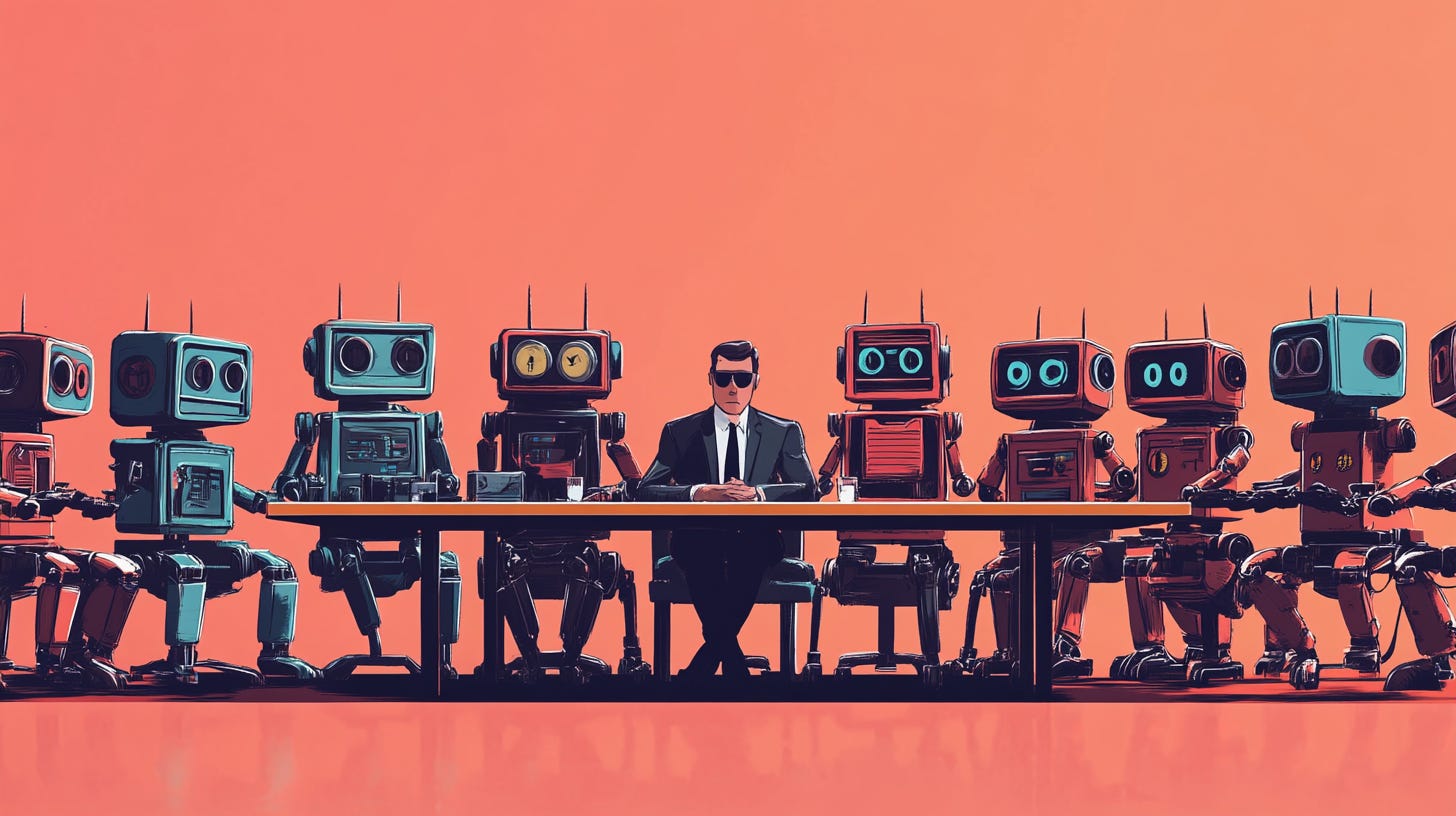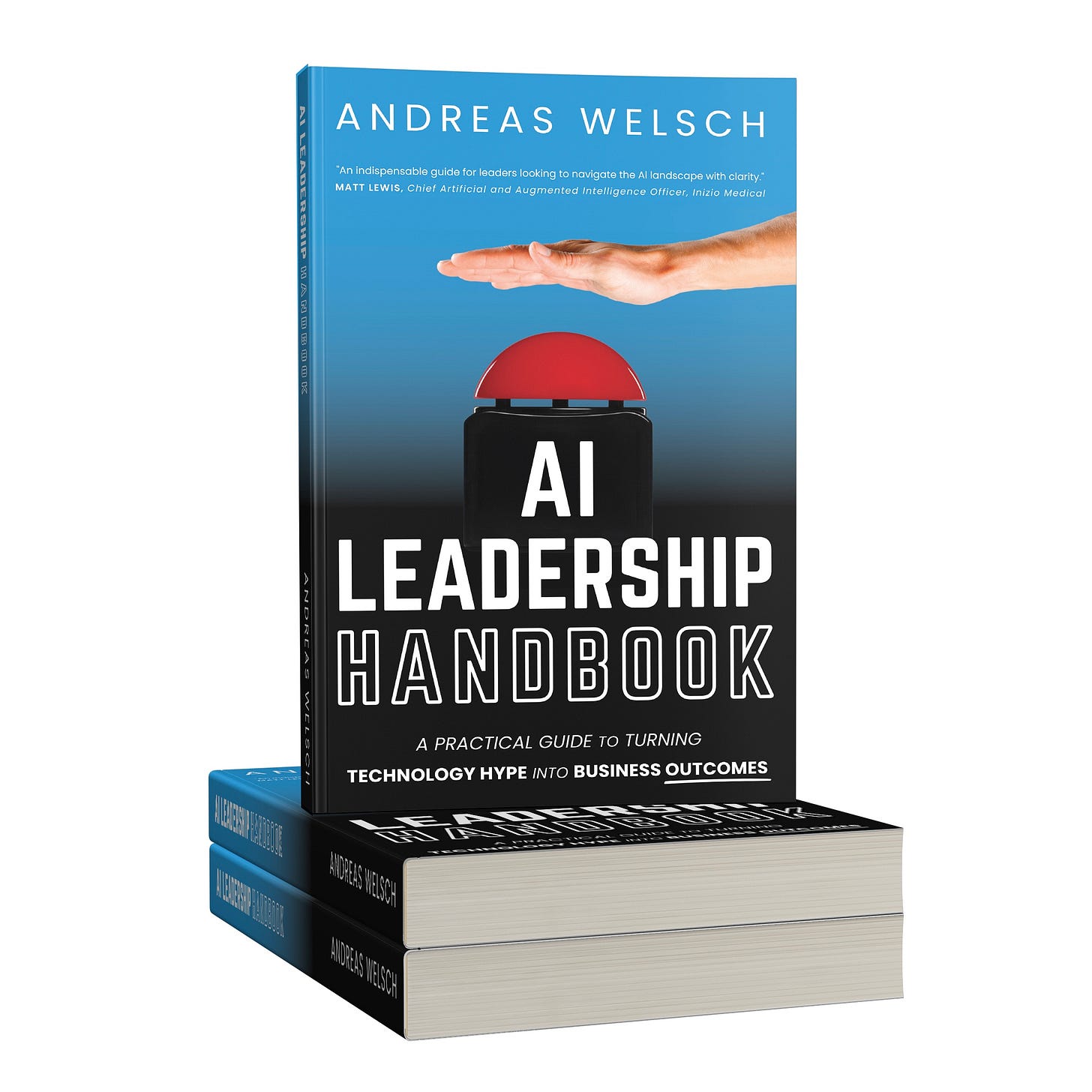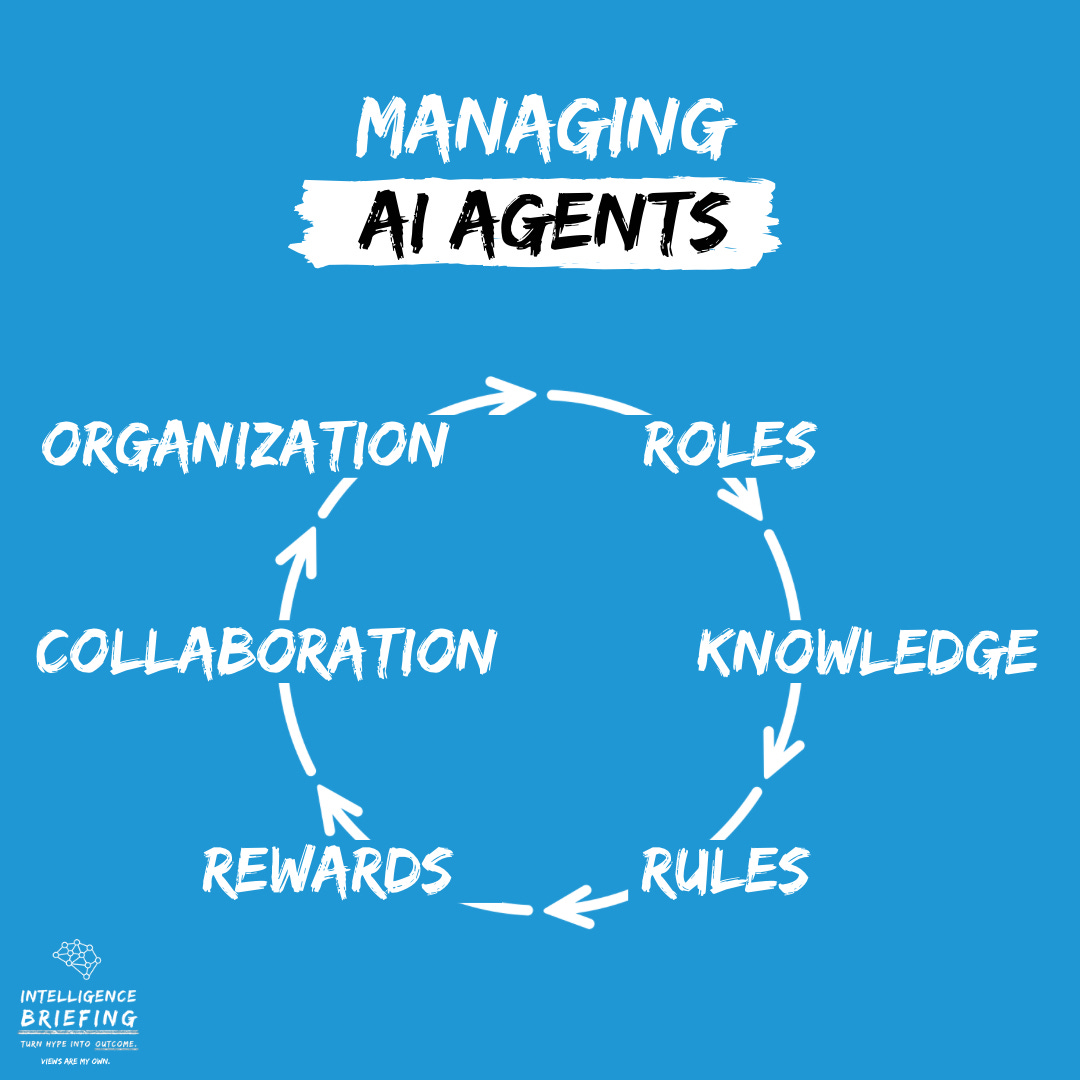Will Businesses Need An 'Agent Resources' Department Soon?
How HR Skills Help Managers Implement, Manage, And Evaluate AI Agents
The past few months have been the “hot summer of agents.” Just as the hype around Large Language Models was starting to wind down, agents created a new hype cycle of their own, quickly moving from novel concepts into practical, commercially available software.
Looking at agents' potential to automate even more complex tasks that involve exceptions and uncertainty, businesses will soon employ more agents than employees. While that sounds like an overly optimistic marketing phrase, it is much less far-fetched than it seems. I have recently researched the latest developments on agents in preparation for developing two courses with LinkedIn Learning, and once you realize the potential, your mind starts racing...
A Refresher on AI Agents
Agents are software components that can make decisions under uncertainty based on defined objectives and interact with their environment. That means a user wants their application to perform a task but doesn’t (need to) provide step-by-step instructions on achieving that objective.
What characterizes these tasks is that they require more than a straightforward step. The agent must understand and disseminate the request (reason what to do), split it into multiple subtasks (so-called experts), and get and assemble the answers to complete the original objective. Whether a user directly instructs an agent or the application uses agents behind the scenes is secondary.
Level up your AI leadership game with the AI Leadership Handbook
Andreas Welsch uses real-world knowledge and examples from interviews with over 60 leaders and experts in AI to help you both introduce and incorporate AI into your organization, from aligning it with your business strategy to turning new-to-AI employees into passionate multipliers to making sure humans stay at the center of your AI use. After reading this book, you will be able to confidently implement AI in your business, no matter your industry.
Parallel Comparisons Between Agents and Humans
Software vendors embed agent capabilities in their business applications and technology platforms, providing professional developers and power users access to these new capabilities. This will enable an “agent sprawl” across the enterprise, similar to a hiring spree known for traditional roles people perform.
We can draw parallel comparisons between human workers and agents in any business along six aspects: roles, knowledge, rules, rewards, collaboration, and organization.
Roles
Agents will take on specializations. This means a marketing agent will dispatch requests to the appropriate subordinate-level agent, specializing in creating ideal customer profiles, search engine optimization, or web copy.
Comparison: Manager, teams, and subject matter experts (and their job descriptions).
Knowledge
Agents must keep their knowledge current to be valuable to the organization. That means they need access to the latest and most accurate data to inform their decisions. While humans might initially provide new data, other agents could take over that task in the long run. These agents might act once they notice that the first agent isn’t meeting the user’s or customer’s expectations.
Comparison: Formal training within organizations.
Rules
Agents will also need to abide by the rules and regulations of their specialization (e.g., how to close the books in accounting or adhering to compliance rules for solutions to recommend). But before an agent performs any task in your business, it will need to ingest, understand, and accept the boundaries of acceptable and unacceptable behavior (e.g., code of ethics and code of conduct).
Comparison: Day #1 onboarding for new hires.
Rewards
Agents have a built-in reward function. It is used to provide feedback about how well they achieve their goal. Agents seek to maximize the reward.
Comparison: Annual performance reviews and salary increases.
Collaboration
Few agents will be working in isolation. Instead, they will collaborate with other agents to accomplish a task. Take the earlier example of the marketing team. Agents must communicate with other agents to understand the goal, share interim steps, gather feedback, and report the final results. But that is not enough by itself. Developers must ensure that every agent involved in achieving an individual goal also has a shared goal. This will increase the chances of achieving the best result possible for the company.
Comparison: Organizational, team, and individual goals.
Organization
Lastly, if tasks require additional input from other departments, such as Finance (to request a budget increase) or IT (to request publishing web updates), governance and awareness of organizational structure, teams, and other agents' specializations will be key.
Comparison: Formal org charts and networking within an organization.
The Role of the Agent Resources Department
The six aspects in the previous section apply to any entity that creates value in an organization. So, why shouldn’t the concepts by which we measure human performance also apply to agents?
I am advocating for Agent Resources (AR) as an evolution of Human Resources (HR)—a new skill set that organizations must develop. Although many of these aspects have a technical foundation, managing them significantly draws on established organizational and HR principles.
Roles
Define an agent’s persona, skills, and scope of work. Model an agent as one task (or role) in a larger system or organizational structure.
Knowledge
Give the agent access to the relevant information for its role and maintain that data source. Monitor performance and user feedback to determine when a knowledge refresh is needed.
Rules
Provide the agent with relevant frameworks (e.g., accounting standards), regulations, and company policies (e.g., code of conduct) and spot-check its adherence by reviewing agent logs.
Rewards
Regularly measure and monitor the agent’s goal attainment to determine whether and how to reward or intervene. A few thoughts to ponder: Should agents that exceed expectations receive a “raise” (e.g., a higher reward)? What will you do if an agent does not perform according to its specifications (or your expectations)? Put them on a performance improvement plan? (I’m serious.)
Collaboration
Define organizational, team, and individual goals to put the agent’s reward optimization in the context of the organization’s goals. If an agent underperforms, review its persona, knowledge source, and rewards.
Organization
Establish a central registry of agents within an organization, similar to a corporate address book, and your personal subset of the people you frequently work with. This is where agents can unfold their full value and, in the long term, their autonomy.
While there seem to be several concepts that can be applied to agents, one is different from the human equivalent: privacy. Managers can ask or find out what the agent is doing and recommending (and why!) at any time—without rules and regulations of what they’re allowed to monitor or ask.
In any case, the skill set to implement and manage these aspects requires more than technology affinity—and it should not be solely left to the technologists among us. The project team or AI Center of Excellence might just be expanded with HR skills.
Summary
Agents have seen a surge in popularity in recent months, moving quickly from concept to reality. As businesses start implementing agents, the latter might quickly exceed the number of human workers in the organization. Organizations should prepare to manage agents along six aspects: roles, knowledge, rules, rewards, collaboration, and organization.
Similarly to human workers, agents will be embedded in (the same) organizational structures. Agents can be provided with information, goals, and reviews, and they will be subject to performance reviews and upskilling. Ultimately, the HR skill set will find new applications in this evolving reality of agents, culminating in the need for an Agent Resources department.
Where will the Agent Resources skillset reside:
Are AI organizations prepared to add HR-like skills to the design, evaluation, and improvement of agents?
Likewise, are HR departments prepared to apply established concepts to AI agents?
Do you need help breaking down the emerging complexity of agents? Reply to this article to get in touch.
Explore related articles
Become an AI Leader
Join my bi-weekly live stream and podcast for leaders and hands-on practitioners. Each episode features a different guest who shares their AI journey and actionable insights. Learn from your peers how you can lead artificial intelligence, generative AI & automation in business with confidence.
Join us live
September 24 - Steve Wilson, Project Leader, OWASP Foundation, will be on the show to discuss red-teaming and safeguards for LLM applications.
October 17 - Nicole Wieberneit, Go-To-Market Leader, will join and share how to enable your sales team on AI.
October 29 - Jeremy Gilliland, Automation & AI Leader, will talk about the symbiosis between Generative AI and RPA for next-level process automation.
November 19 - Petr Baudis, Co-Founder & CTO, Rossum, will join and discuss how you can automate your document processing with LLMs.
Watch the latest episodes or listen to the podcast
Follow me on LinkedIn for daily posts about how you can lead AI in business with confidence. Activate notifications (🔔) and never miss an update.
Together, let’s turn hype into outcome. 👍🏻
—Andreas








